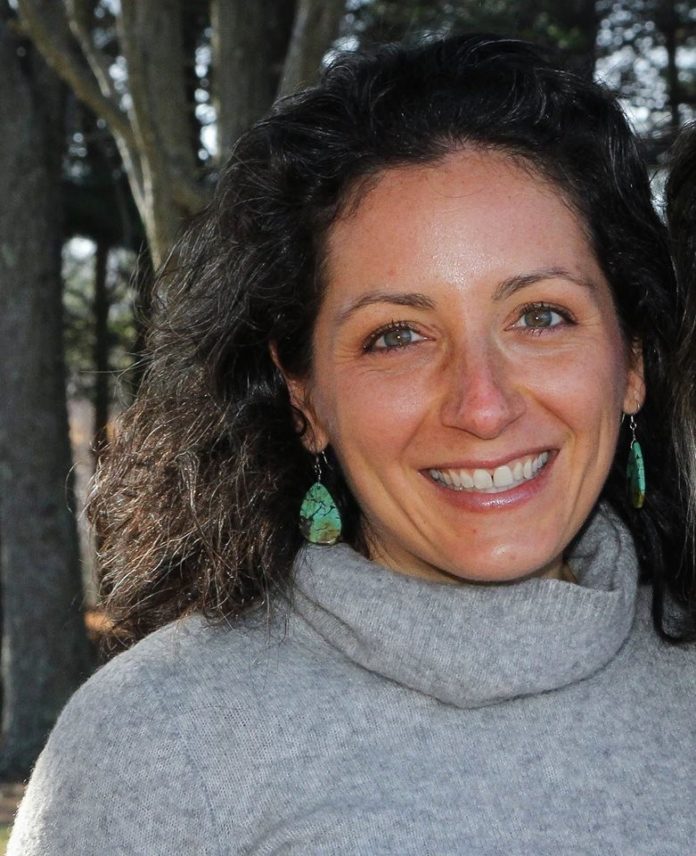
Laura Bozzi is the farm, food and youth programs director at the Southside Community Land Trust, where her responsibilities include expanding the organization’s youth urban farms internship program and developing ways to support beginning farmers through training and access to land. She has been in the post since January. Here she discusses developments at the nonprofit.
PBN: What is the biggest challenge in teaching people how to grow food?
BOZZI: Since 1981, Southside Community Land Trust has helped its neighbors in South Providence and other underserved communities to grow their own food. Through our Plant Providence program, we offer workshops throughout the year on topics like container gardening and composting and soil health. We also lead summer children’s programs through which we teach about 130 grade-school students about gardening and healthy eating.
But when it comes down to it, for many people, the best way we can help them to grow food is by providing them access to garden space.
For instance, we work with many people from Providence’s refugee and immigrant communities who have past agricultural experience from their home countries, but here in the city, they aren’t able to have gardens at their homes. And so, we operate a network of 46 community gardens that serve 750 families. Many of these gardens are on land that we own or that we lease from the city. Here, our biggest challenge is that the demand for garden plots exceeds the space we have. That’s why we continually work to build new community gardens through fundraising and community organizing efforts.
PBN: Why the focus on helping people grow food?
BOZZI: We help people grow food because we’ve found it’s one of the best ways to give limited-income families access to healthy and fresh food. Our gardeners are saving money at the grocery store while bringing home to their kitchen tables the delicious veggies they just picked.
Our work to address the problem of food insecurity in Providence is broader than the gardens alone. This summer, for instance, we teamed up with market managers, farmers and our youth interns to launch a grassroots marketing campaign in South Providence, the West End, and Olneyville to invite people to the nearby farmers’ markets. We knocked on doors, made community presentations, mailed flyers and visited health clinics. This project is based on an observation that a main barrier limiting many people from shopping at a farmers market isn’t cost or disinterest, it’s the lack of information about where and when the markets take place, and how someone can shop with federal nutrition benefits.
In particular, our marketing highlighted the Bonus Bucks program: for every $5 of [food stamps] used at a participating market, the shopper receives an extra $2 to spend there.
PBN: What are the main products of City Farm? Do youth get involved in production and if so how?
BOZZI: City Farm is our ¾-acre farm in South Providence, where we grow all kinds of fruits and vegetables that we sell at farmers markets and to local restaurants. A favorite item is our “City Farm salad mix,” which often includes edible flowers. Every May, the trust also holds its Annual Rare and Unusual Plant Sale, where we sell hundreds of varieties of vegetable, herb and annual flower starters that the City Farm team grew from seed. Each spring, about 20,000 plants are grown out of our single greenhouse.
This past summer, several youth interns worked one shift per week at City Farm. They harvested produce, planted lettuce beds, processed compost, fed the chickens, and did other needed farm tasks. For most, this was their first experience growing food, and they learned how difficult and rewarding that work is. And along the way, we all found again how there’s a special kind of relationship and trust that builds while doing this kind of hard work together.
PBN: How many youth participate in nonprofit activities and in what capacity? Is this number growing and if so, why?
BOZZI: This past summer, we expanded the youth employment program from five high school students to 11, and five are continuing to work after school for the fall.
Providence young people are in need of good job possibilities. We expanded our program in order to offer the opportunity to more youth. At the same time, we see the program as much more than a paycheck, and we were eager to expand our reach in this way as well.
The interns co-taught the children’s gardening program and went door-to-door to invite their neighbors to shop at the farmers markets. They discussed food justice issues, and they met with political officials. The interns gained confidence, and they learned job skills that will serve them their whole lives, enabling them to give back to their communities.
PBN: Tell us about the youth farm enterprise you are developing.
BOZZI: This is a really exciting new project at the land trust. We purchased a nearly ¼-acre plot just off Broad Street in South Providence, where we’ll build a new home for our youth employment program. At this youth enterprise farm, young people will be involved in all the steps of a farm business. With land trust staff, they’ll grow the crops, market and sell the produce, and work together to make wise management decisions and to learn from their experiences. We held a design charrette a couple weeks ago in which we invited our youth interns, their families and community members to participate in the planning and design process. We hope to have it up and running in the next year or two.












